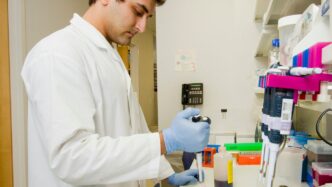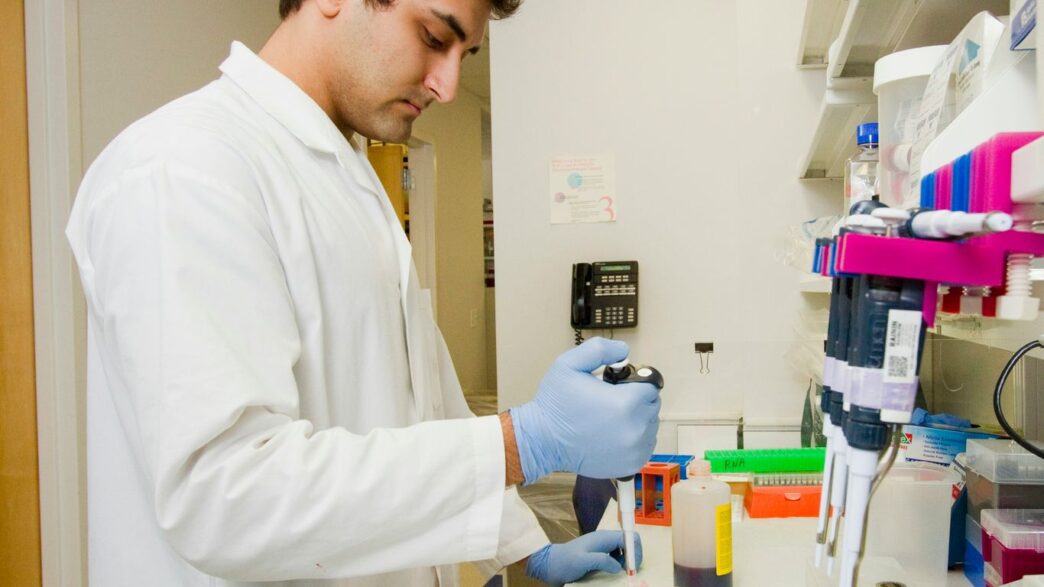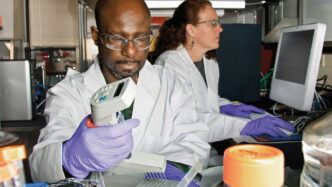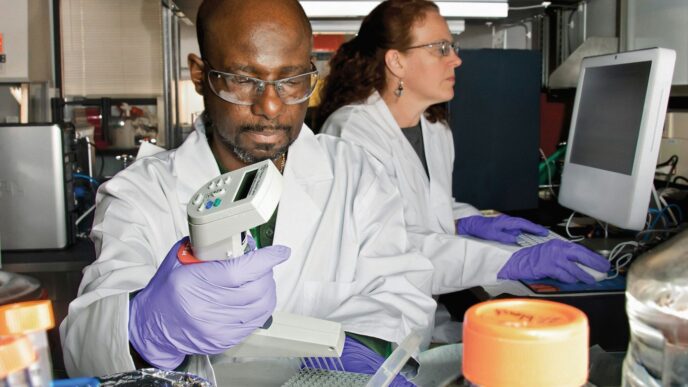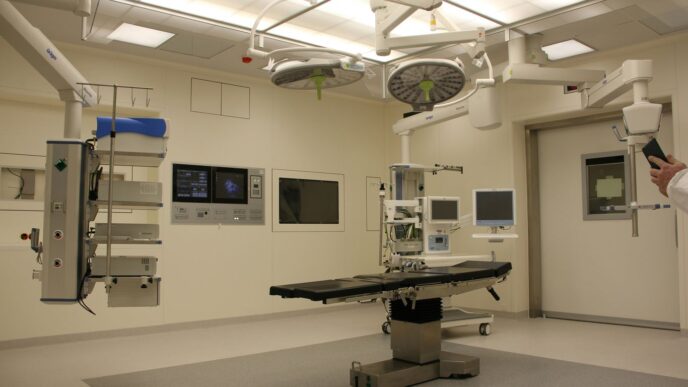Looking to move up in the biotech world? There are lots of training programs out there that can help you get ahead. Whether you’re just starting out or looking to specialize, finding the right program makes a big difference. We’ve looked at what’s available to give you an idea of what to expect and how these courses can shape your career path. It’s all about getting the skills and knowledge employers are looking for.
Key Takeaways
- Learn the basics of biotech, including chemistry and biology, plus hands-on lab skills.
- Understand the business side of biotech, like how to sell products and manage companies.
- Get specialized training in areas like diagnostics or digital health.
- Find programs that help you switch to industry jobs or improve your current career.
- Focus on developing soft skills such as communication and networking for professional success.
Mastering Foundational Biotech Skills
Getting started in biotech means building a solid base of knowledge. It’s not just about memorizing facts; it’s about understanding the building blocks that make this field tick. Think of it like learning the alphabet before you can write a novel.
Introduction to Biotechnology Concepts
This part of your training will cover what biotechnology actually is. You’ll learn about the different areas within biotech, like pharmaceuticals, agriculture, and environmental science. It’s about getting a feel for the landscape and seeing where your interests might fit. You’ll also touch on the history of biotech and how it’s grown into the industry it is today. It’s pretty interesting stuff, really.
Core Chemistry and Biology Principles
This is where you’ll revisit or learn the science basics. We’re talking about how cells work, what DNA does, and the chemical reactions that keep living things going. Understanding these core ideas is super important because almost everything in biotech relies on them. You’ll likely cover topics like:
- Cell structure and function
- Genetics and heredity
- Basic organic chemistry
- Enzyme activity
Essential Biotechniques Laboratory Training
This is where the real hands-on work begins. You’ll get into the lab and learn how to actually do biotech. This means learning techniques that scientists use every day. You might spend time learning:
- How to use lab equipment like pipettes and centrifuges.
- Basic sterile techniques to keep your experiments clean.
- How to prepare samples for analysis.
The goal here is to get comfortable working in a lab setting and performing common procedures accurately. It’s a lot of practice, but it’s how you build the practical skills needed for many biotech jobs.
Navigating the Business of Biotechnology
So, you’ve got the science down, but what about the money side of things? Biotech isn’t just about lab coats and pipettes; it’s also a business. Understanding how ideas turn into products that help people is a whole different skill set. These programs look at how companies get started, how they figure out what people need, and how they actually make money.
Commercialization Strategies in Life Sciences
This is where the rubber meets the road. You learn how to take a scientific discovery and make it into something people will buy. It’s about figuring out who needs your product, how to reach them, and what price makes sense. Think about it like this: a great new drug is useless if no one can get it or afford it.
Understanding Business Models and Market Assessment
Every company needs a plan for how it’s going to operate and make money. This section covers different ways biotech companies can structure themselves. Are they selling a service? A product? Licensing their technology? You’ll also learn how to look at the market – who are the customers, who are the competitors, and what’s the overall size of the opportunity? It’s like being a detective for potential business success.
Entrepreneurship and Innovation Management
Ever thought about starting your own biotech company? This is the place to start. You’ll explore what it takes to be an entrepreneur in this field, from coming up with new ideas to managing the process of bringing them to life. It’s about taking risks, managing teams, and keeping the innovation engine running. It’s a blend of creativity and practical execution.
Here’s a quick look at what you might cover:
- Idea Generation: Where do new product ideas come from?
- Team Building: Finding the right people to make it happen.
- Funding: How do you get the money to start and grow?
- Product Development: Moving from a concept to a real product.
- Market Entry: Getting your product out there.
Specialized Training in Biotech Areas
Biotechnology is a big field, and sometimes you need to focus on a specific part of it to really get ahead. These programs help you do just that, giving you skills in areas that are really important right now.
Diagnostic Development and Regulatory Pathways
Getting a new medical test or diagnostic tool from an idea to the market is complicated. This training looks at how that happens. You’ll learn about the steps involved in getting approval, like what the FDA needs to see. It’s about understanding the rules and making sure products are safe and work well. Knowing these regulatory pathways is key for anyone wanting to work in medical device development. You’ll also cover quality systems, which are the procedures companies use to make sure their products are consistent.
Digital Health Trust and Implementation
Digital health is growing fast, with apps and devices that help manage our health. But how do we know these tools are reliable and safe? This training focuses on building trust in digital health solutions. It covers how to implement these technologies responsibly, making sure patient data is protected and the tools actually help people. It’s about making sure the digital side of healthcare is something we can count on.
Good Publication Practices for Medical Research
When companies do research on new medicines or treatments, they need to share their findings. This training is all about how to do that correctly. It covers the rules and best practices for writing and publishing research results, especially when a company is involved. This means being honest about the data, giving credit where it’s due, and following guidelines so that the information shared is accurate and helpful for other scientists and doctors. It’s a way to make sure medical research is communicated clearly and ethically, which is important for advancing medical knowledge.
Career Transition and Development Programs
Transitioning to Industry Roles
Thinking about a switch into the biotech field? It’s a big step, and many programs are set up to help you make that move. These programs often focus on giving you the practical skills employers are looking for, not just theory. They understand that coming from a different background means you might need a bit of extra help getting your foot in the door. The goal is to bridge the gap between your current experience and the demands of a biotech job.
Leveraging Analytical Skills for Biotech Careers
Your ability to analyze information is a big asset in biotech. Whether you’ve been working in customer service, data entry, or even something completely unrelated, you’ve likely developed skills in problem-solving and critical thinking. Programs can help you see how these skills apply to biotech. For example, managing a project, even a small one, shows you can organize tasks and meet deadlines, which is important in lab settings. Similarly, if you’ve dealt with customer complaints, you’ve practiced troubleshooting – a key skill for a lab technician trying to figure out why an experiment isn’t working.
Here’s how some common skills translate:
- Attention to Detail: Crucial for following lab protocols accurately and recording data precisely.
- Problem-Solving: Useful for troubleshooting equipment or experimental issues.
- Communication: Needed for reporting results, collaborating with team members, and writing documentation.
- Time Management: Important for balancing multiple tasks and meeting project deadlines.
Networking and Industry Guest Interactions
Getting into a new field is often about who you know, or at least who knows you. Many training programs make a point of bringing in people who already work in biotech. These guest speakers can share their own career paths, what their day-to-day work is like, and what they look for when hiring. It’s a good chance to ask questions you might not think of otherwise. Plus, these interactions can sometimes lead to internships or even job opportunities down the line. Building these connections early on can make a big difference when you’re ready to apply for positions.
Hands-On Laboratory and Technical Training
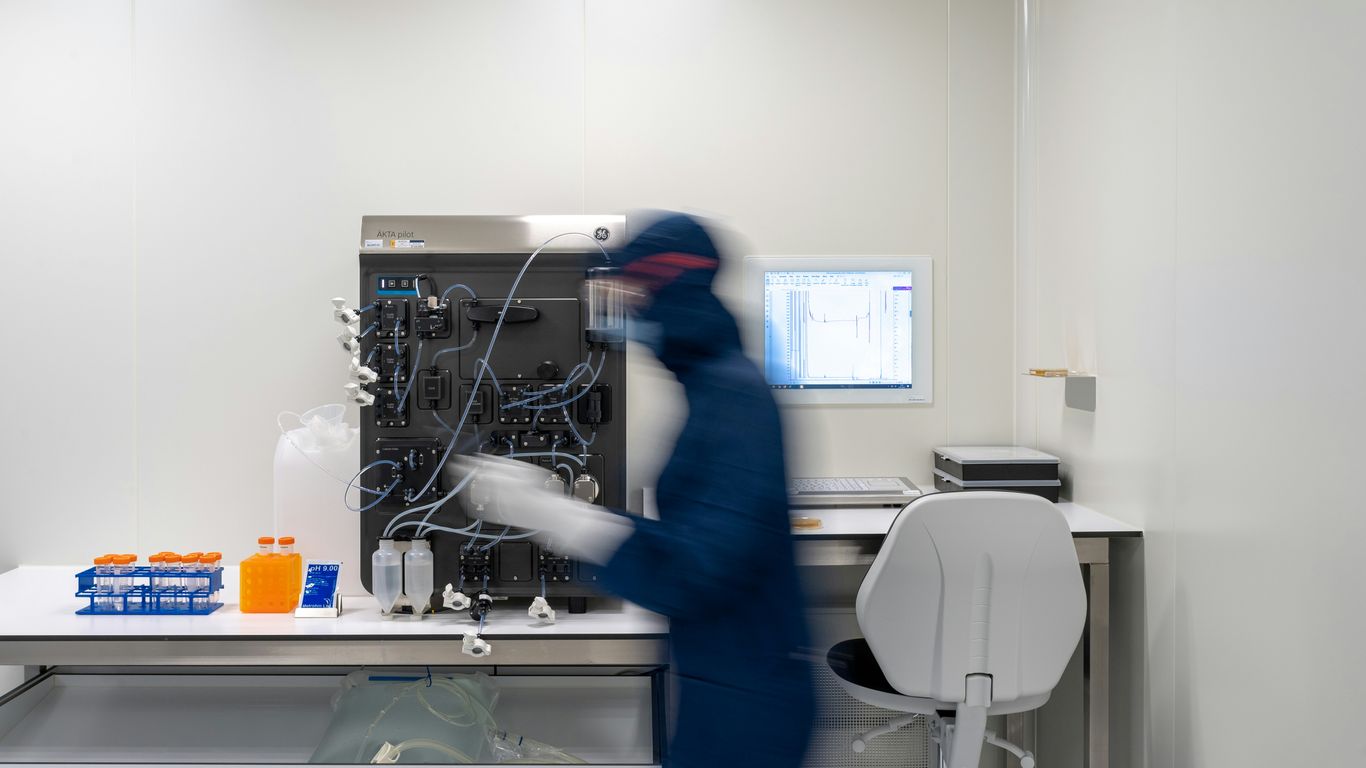
Getting your hands dirty in the lab is where the real learning happens in biotech. You’ll spend a good chunk of time actually doing the techniques you read about. Think over 300 hours in the lab, working with equipment and trying out methods that are used in the field today. It’s not just about following steps; it’s about understanding why you’re doing them and what the results mean.
Here’s a look at what you’ll be doing:
- Working with Cutting-Edge Instrumentation: You’ll get familiar with the machines scientists use every day, like those for spectroscopy. Learning to operate and maintain this gear is a big part of the job.
- Mastering Molecular Biology and Biochemical Techniques: This covers a lot, from DNA manipulation to protein analysis. You’ll learn how to isolate, purify, and analyze biological molecules.
- Advanced Chemistry and Cell Manipulation: This includes working with cells, growing them, and performing chemical reactions. It’s about understanding the building blocks of life at a molecular level.
Many programs are set up so you start with practical lab work early on, even on day one. This helps connect what you learn in lectures to what you’re actually doing. The goal is to make you feel comfortable and capable in a lab setting. After completing these practical training hours, graduates are ready for entry-level jobs like lab technicians or research assistants. It’s a solid foundation for a career in science.
Accelerated Biotech Training Options
Feeling the need to jumpstart your career in biotech but short on time? There are programs out there designed to get you industry-ready faster than you might think. These options often pack a lot of learning into a shorter period, focusing on practical skills and direct career application. It’s a way to get your foot in the door without committing to a multi-year degree.
Nine-Week Accelerated Program
Some programs offer a condensed, nine-week format. This is perfect if you’re looking for a quick transition into entry-level roles. You’ll typically cover core biotech concepts, lab techniques, and maybe even some business aspects of the industry. The goal here is to give you enough hands-on experience and knowledge to be job-ready.
- Focus on practical skills: Expect a heavy emphasis on laboratory techniques and instrumentation.
- Industry relevance: Curriculum is often designed with input from industry professionals.
- Career services: Many programs include help with resume building and interview preparation.
Fast-Track Semester Completion
Other options might involve a fast-track approach to completing a more traditional semester structure. This could mean slightly longer days or fewer breaks, but it allows you to cover the same material as a longer program in a reduced timeframe. It’s a good middle ground if you want a thorough education but still need to move quickly.
Comprehensive Curriculum for Entry-Level Positions
These programs are built from the ground up to prepare you for specific entry-level jobs. They often cover a broad range of topics, from basic science principles to specific lab procedures. Think of it as a direct pipeline to roles like:
- Laboratory Technician
- Research Assistant
- Manufacturing Technician
- Quality Control Assistant
The key takeaway is that these accelerated paths prioritize getting you into the workforce efficiently. They aim to equip you with the skills employers are looking for right now, making them a smart choice for career changers or recent graduates eager to start their biotech journey.
Developing Essential Soft Skills for Success
So, you’ve got the science down, maybe you’ve even aced some lab work. That’s great! But in the biotech world, knowing your stuff technically is only half the battle. The other half? It’s all about how you interact, communicate, and present yourself. Think of it as the ‘people skills’ that make the science happen smoothly.
Business Communications for Scientific Professionals
This isn’t about sounding like a salesperson, but more about getting your ideas across clearly and professionally. Whether you’re writing an email to a potential collaborator or explaining a complex process to someone outside your field, clarity is key. You’ll learn how to structure your thoughts, use appropriate language, and tailor your message to your audience. It’s about making sure your brilliant scientific insights aren’t lost in translation.
Career Exploration and Development Training
Figuring out where you fit in the vast biotech landscape can be a challenge. This part of the training helps you explore different career paths. You’ll look at what various roles actually involve day-to-day and what skills are most sought after. It’s about self-assessment and understanding the job market so you can make informed decisions about your future.
- Identifying personal strengths and interests.
- Researching different biotech industry sectors (e.g., pharmaceuticals, diagnostics, agricultural biotech).
- Understanding typical career progression within these sectors.
Building Professional Networks and Relationships
Networking can sound intimidating, but it’s really just about building connections with people in the field. These connections can lead to mentorship, job opportunities, and a better understanding of industry trends. It’s about showing up, being curious, and following up.
- Attending industry events and conferences (even virtual ones) is a good start.
- Engaging with professionals on platforms like LinkedIn.
- Following up with people you meet to maintain the connection.
Your Next Steps in Biotech
So, you’ve seen some of the great training options out there for boosting your biotech career. Whether you’re looking to get hands-on lab experience, understand the business side of things, or just get your foot in the door, there’s a program that can help. It’s a big field, and getting the right training can really make a difference in where you end up. Take some time to look into these programs and figure out which one fits best with what you want to do next. Your career is worth the effort.
Frequently Asked Questions
What are the basic science topics I’ll learn in a biotech program?
You’ll dive into the fundamentals of biology and chemistry. Think of it like learning the building blocks of life and how different substances work together. You’ll also get hands-on practice with common lab tools and methods used in biotech.
Do these programs teach the business side of biotech?
Yes, many programs cover how new scientific ideas become products people can buy. This includes learning about how companies make money, understanding what customers need, and how to come up with new and improved inventions.
Are there programs for specific areas of biotech?
Absolutely! You can find training focused on developing tests for diseases, understanding the rules for new medical tools, or even how to share research findings correctly. Some programs also focus on new tech like digital health.
Can these programs help me switch to a biotech job?
Definitely. Many courses are designed to help people move from other fields, like school research, into biotech jobs. They teach you how to use your current skills, like analyzing information, and how to connect with people in the industry.
How much hands-on lab work can I expect?
You can expect a lot of it! Many programs offer over 300 hours in the lab. You’ll learn to use advanced equipment and practice techniques like working with DNA and cells, getting you ready for real-world lab work.
Are there quick ways to get trained in biotech?
Yes, some programs are designed to be completed faster, like a nine-week option or finishing a semester quickly. These are great if you want to get into the field without a long commitment, and they cover the important stuff for beginners.

